WARSAW, Poland – Eight-year-old Yehor focuses on the task at hand.
On the floor of a hotel hallway, he folds scraps of paper into squares, layer upon layer as if he’s packaging a present.
In the past two months, Yehor has slept in the cold, dark hallway of his apartment building, where blasts in his hometown Mariupol shook the windows and where food and clean water ran out fast.
Then, while sheltering with relatives, an explosion caved in the roof over their heads. His mother grabbed him and the family cat named Mouse and sprinted to the nearest building still standing.
He spent two nights at a school crammed with evacuees, sleeping on a flattened cardboard box his mother found and claimed as a bed.
He boarded a minibus crammed with strangers, spent a day-and-a-half inching along in bumper-to-bumper traffic and stopping at nearly 40 checkpoints on the road out of Ukraine.
That’s how he ended up here – in a hotel in Warsaw, folding and folding his paper package while children next to him craft paper planes.
“What are you making?” asks Mandy Haase-Thomas, a Nebraska volunteer who has come here with the expertise – and the desire – to help Ukrainian kids like Yehor.
“Wrapping supplies for the war,” he replies.
In the two months since Russia launched a war against Ukraine, an estimated 5.4 million people have fled the country – the largest refugee crisis on European soil since World War II.
Yehor is one of roughly 1.6 million Ukrainian children among those displaced, now spending their days in shelters, hotels and strangers’ homes across Europe.
One of those hotels is a Best Western just east of the Vistula River in Warsaw, where 50 rooms are filled with Ukrainian families trying to figure out what’s next.
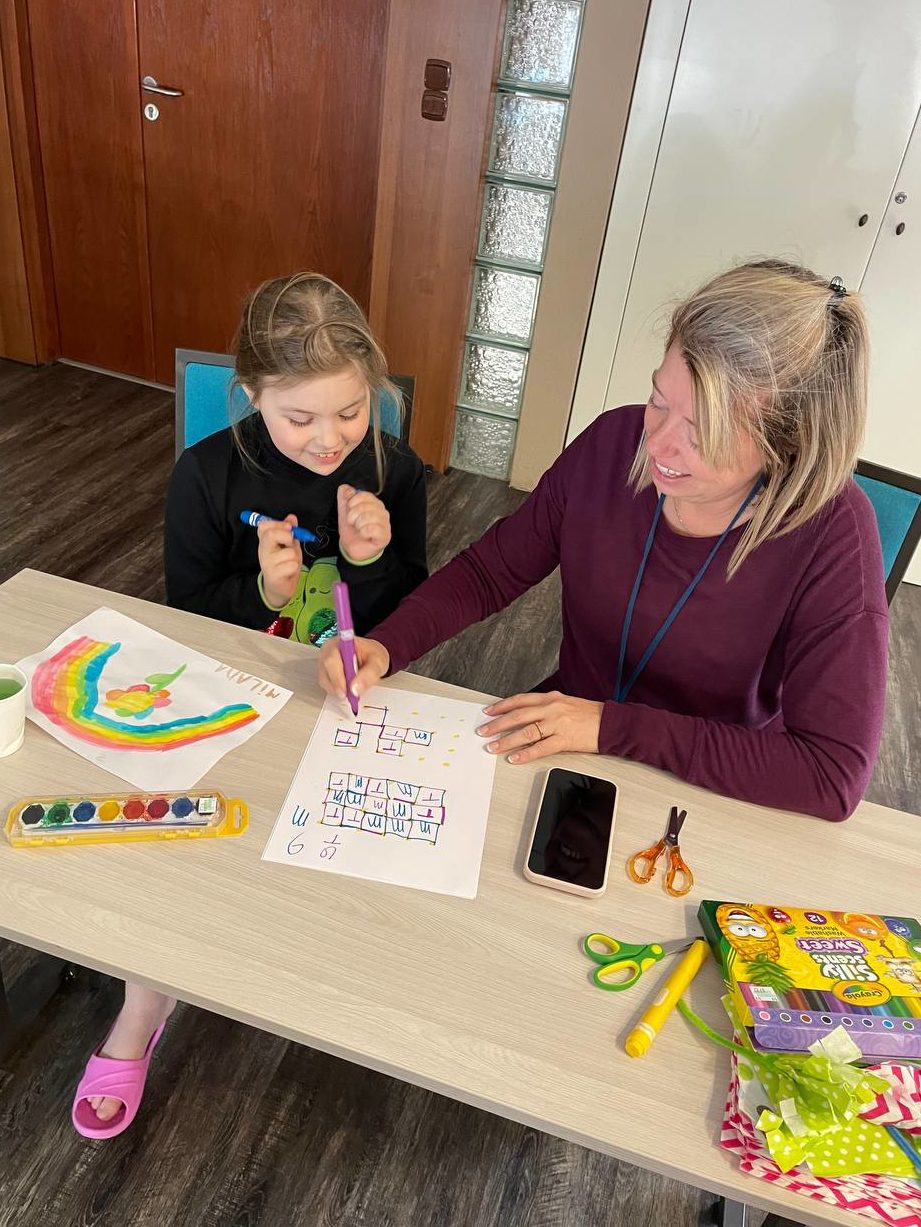
It’s the de facto headquarters of Operation Safe Harbor Ukraine, a Nebraska-founded project raising money and sending volunteers to keep refugee families safe, housed and fed.
About 160 Ukrainian children have entered this hotel after fleeing violence with their families. Like Yehor, some have seen the dead. They have an acute awareness of the realities of war. They know to fear snipers and bombs. Many left behind fathers and older brothers. All left behind life, and childhood, as they knew it.
On the journey out of Ukraine, 8-year-old Yehor rarely cried, his mother, Kateryna Shepotynyk said.
“He is strong, and he is brave,” she said. “He is not afraid. Absolutely not afraid.”
Through toys, crafts and games, two Nebraska volunteers from the Lincoln Children’s Museum hope to ease the kids’ trauma, if only for a few moments every day.
Tara Knuth and Haase-Thomas arrived in Poland on Sunday, April 24, lugging bags brimming with stuffed animals and puzzles; string and beads and plenty of fuzzy pipe cleaner; markers and coloring books and playing cards to pass the time in hotel rooms.
(Editor’s note: Flatwater Free Press Natalia Alamdari arrived in Warsaw the same day, a guest of Operation Safe Harbor. The project’s leaders are allowing her to stay in the hotel as she reports and volunteers. Learn more about Operation Safe Harbor at www.operationsafeharborukraine.com.)
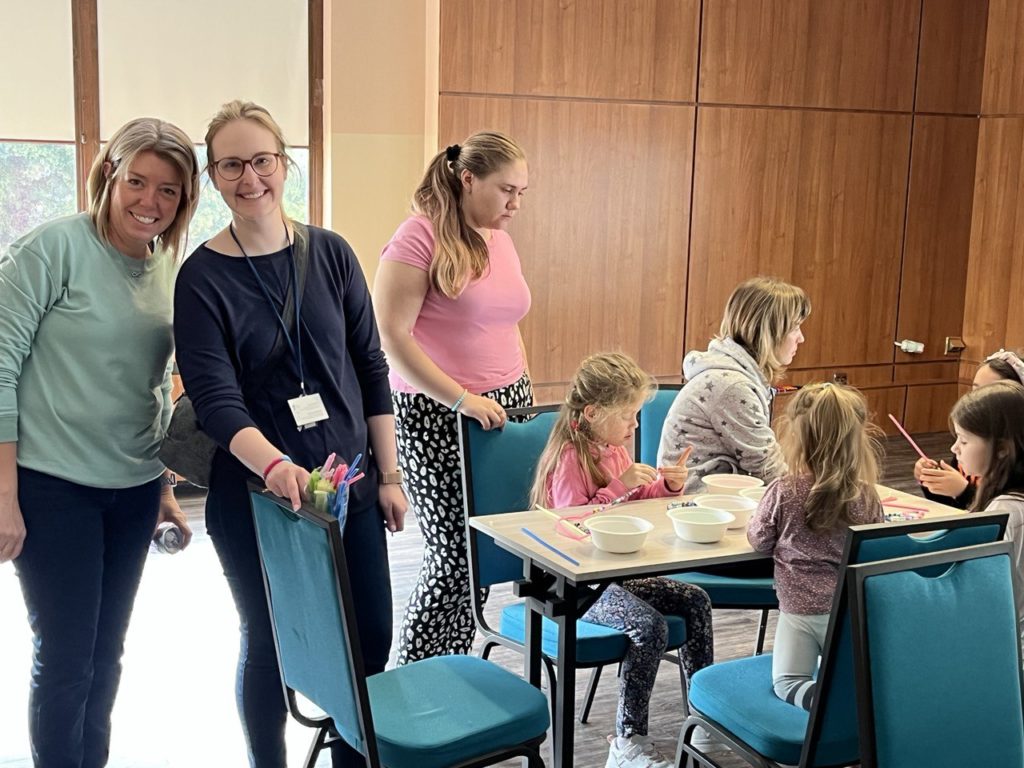
The Children’s Museum duo learned about the opportunity when Knuth’s husband came home from playing basketball with news – teammate Steve Glenn, former Husker football player and well-known Lincoln businessman, was raising money and recruiting volunteers to run a hotel shelter for Ukrainian refugees.
They were soon on a plane bound for Eastern Europe, flying to this city a few hours from the Ukrainian border – and hoping that what they know about educating and entertaining Nebraska kids could help the youngest Ukrainians, too.
“Their days used to be school…their days used to be playing with friends in the neighborhood,” said Knuth, executive director of the Lincoln Children’s Museum. “And then it wasn’t that for a long time. And now, to have some normalcy back in it is important. When they can play and let their guard down, because they know they’re feeling safe.”
Knuth and Haase-Thomas, the museum’s director of operations and engagement, have transformed the hotel conference room into a makeshift children’s museum.
There are tables of craft supplies and coloring materials. A corner of blocks and toy cars, where the windowsill becomes a pretend race track. The Nebraskans pace the room, helping kids create flowers out of multicolored napkins and pipe cleaner, and passing out beads to string together bracelets.
The Nebraskans don’t speak Russian or Ukrainian. The kids don’t speak English. Most communication happens over Google Translate, as the children pass a phone back and forth to read what the Nebraska volunteers have said.
In the conference room, it’s the water table – a green plastic bin with canals and toy boats and rubber ducks, filled with water – that the kids flock to.
“Water brings everything together,” Knuth said. “Kids feel safe around water.”
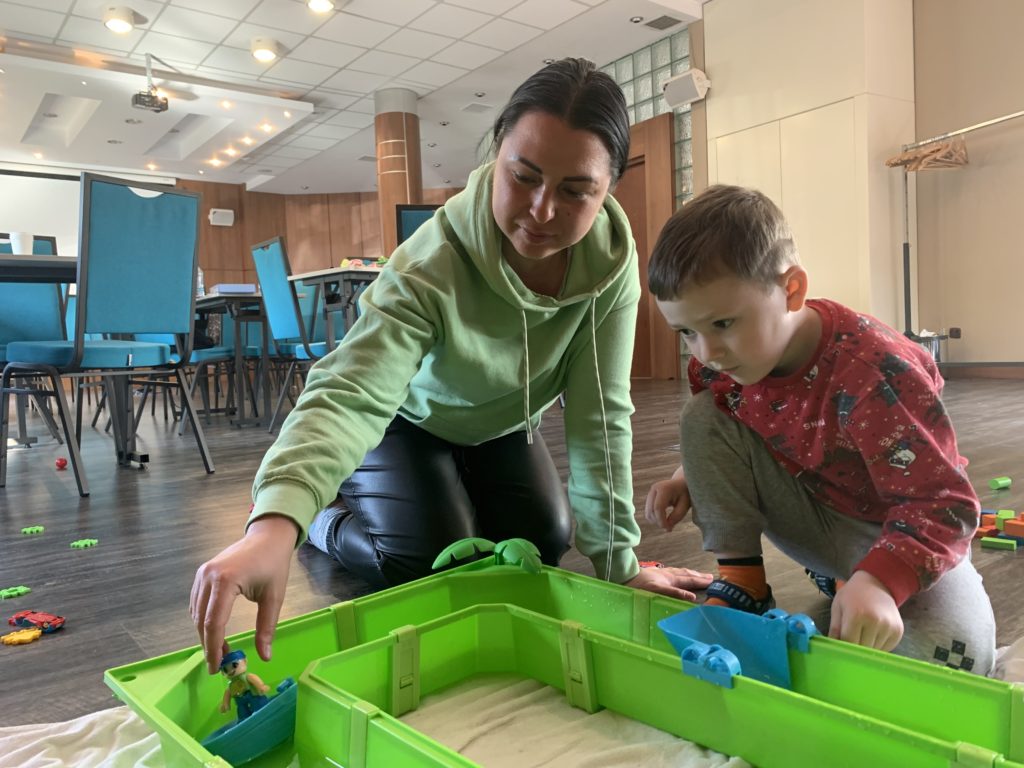
Kids like Timur Iordatii. Sitting on the conference room floor, he cranks a handle with one hand to make small waves through the plastic river of water. With another, he guides a rubber boat through the twists and turns.
Timur and his mother walked 18 miles to the border after their bus leaving Lviv got stuck in stand-still traffic leaving the country.
Along the road, families who lived nearby left food and supplies for those walking.
Mama, we have to leave, Timur told mother Viktoriia Iordatii when the war began. There are snipers, bombing, shooting, we need to go.
Timur is four. His mother’s suitcase stands taller than him, but he still offered to help roll it along the side of the road.
He got sick after sleeping on a thin mattress on the cold floor of a school near the Ukrainian border. They stayed in a hostel and then with three different families before ending up at the Best Western last week.
After two months, they finally have privacy and their own shower. Timur is finally around kids who have been through what he has. “A gift from God,” his mother said.
In this hotel, even playtime is infused with thoughts of the war: A leftover box becomes a make-believe tank. Armed with blue and yellow markers, children color the Ukrainian flag into hearts and outlined hands.
Play is a language, Haase-Thomas said, shedding light on how kids grapple with what’s going on in their world.
The duo from the Lincoln Children’s Museum came to Warsaw to offer comfort through play.
In addition to her museum work, Knuth has helped train foster parents and advocated for children in foster care. It taught her that something as simple as using the same pasta sauce a person is used to can bring comfort.
“These kids have lost everything.” she said. “There’s some safety in what you know.”
One mother told Knuth she’s glad her son can wander the hotel with friends instead of sitting in the room thinking about the past two months. Playtime is a welcome distraction.
“It’s always helpful when you’re connecting with other people who are going through the same thing. The kids need that,” Knuth said. “Social and emotional, there’s a reason why they’re tied together. Being isolated gets you in your thoughts.”
By the end of their makeshift museum’s first day, the Nebraskans had to set up an extra table because so many young refugees – and their moms – wanted to make bracelets. Kids walked around proudly showing off their handiwork, while mothers chatted and kept their hands busy stringing beads onto colored pipe cleaner.
Children, mothers and volunteers all walked out with rainbows of bracelets on their wrists.
Before she decided to leave for Poland, Haase-Thomas’s six-year-old daughter asked: “Mommy, did you know there are people who don’t have houses? Can we give them money? We have enough.”
A few days later, the Lincoln museum employee attended a church service focused on following your heart if you feel called to help. She spoke to Glenn, who told her he could tell her own heart was set on helping Ukrainian kids.
“Mommy’s going to help people who don’t have a home,” she told her daughter before she left. “She’s going to help other mommies.”
Now Knuth and Haase-Thomas try to make the Ukrainian parents’ lives easier any way they can. They play with their children. They run to the pharmacy to grab much-needed medicines. They serve meals. They try to lift a little weight from the parents in the hotel, Knuth said. But they can only lift so much.
“What we can do during the day does not change what (the children) are probably experiencing at night. When things get quiet, when their thoughts come back,” Knuth said. “There’s only so much distraction, there’s only so much fun that we can put into this.”
The best they can do: Offer something else these kids can remember.
“That when they look back on this time, it’s not all bad memories,” Knuth said. “That there are people that played with them, who gave them attention, who loved them.”
“Who wanted to make sure they felt safe,” Haase-Thomas said.
Since leaving Ukraine, Yehor hasn’t been enrolled in a new school. Instead, he plays in the hotel halls with his newfound friends. He wraps imaginary supplies for the war he just escaped.
And, on the second day after Lincoln volunteers set up shop, he walks into the makeshift children’s museum.
He colors. He throws plastic darts with the other children.
“He needs to forget about what he’s seen and what he felt. Even for me, I don’t want to remember what it was,” Shepotynyk said. “And here is a place where we can do it.”
Yehor does not yet know that he and his mother will soon fly to London to join his aunt and start a new life.
In this moment, in a Warsaw hotel’s converted conference room, he plays, like an 8-year-old should.

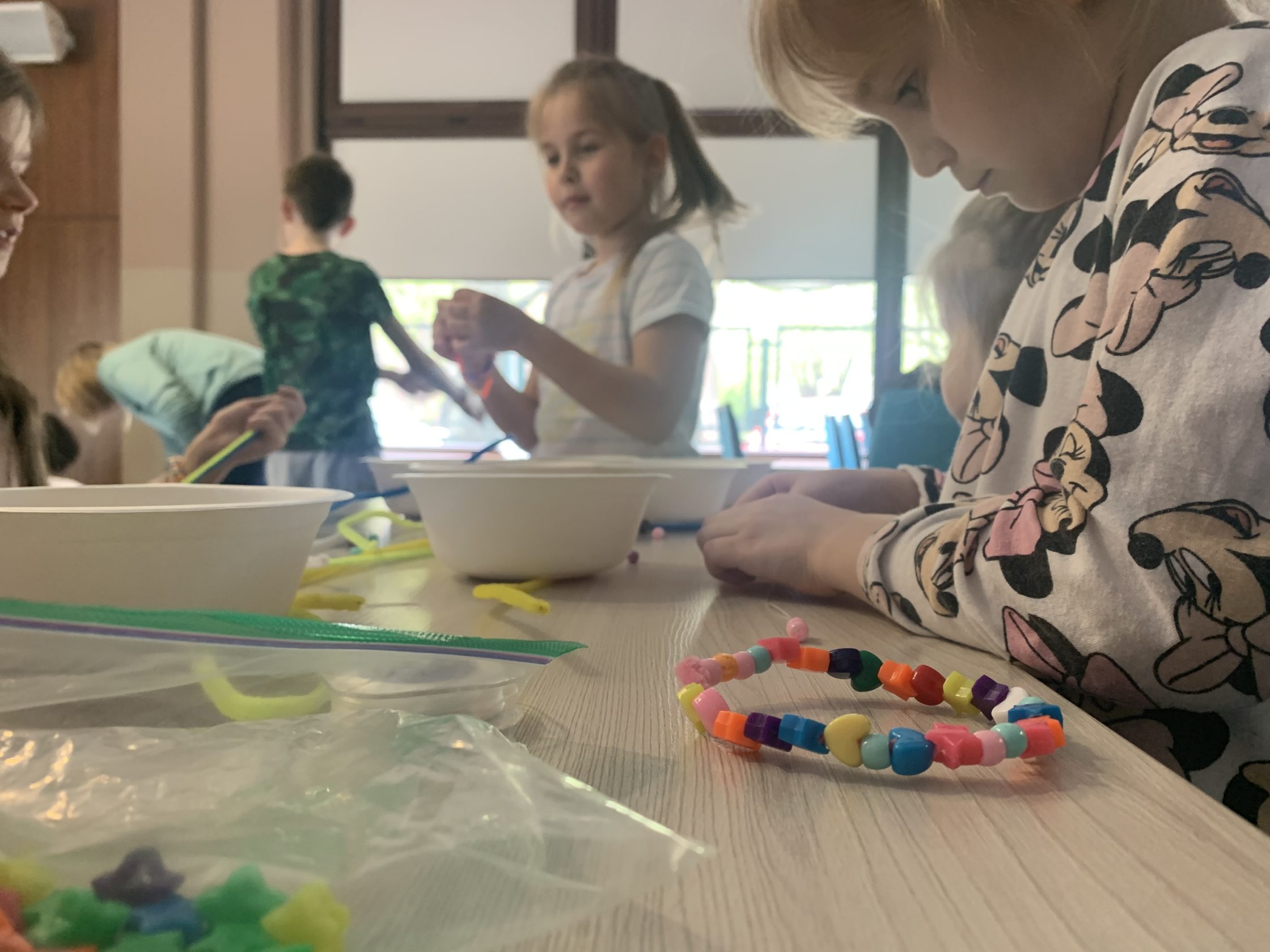

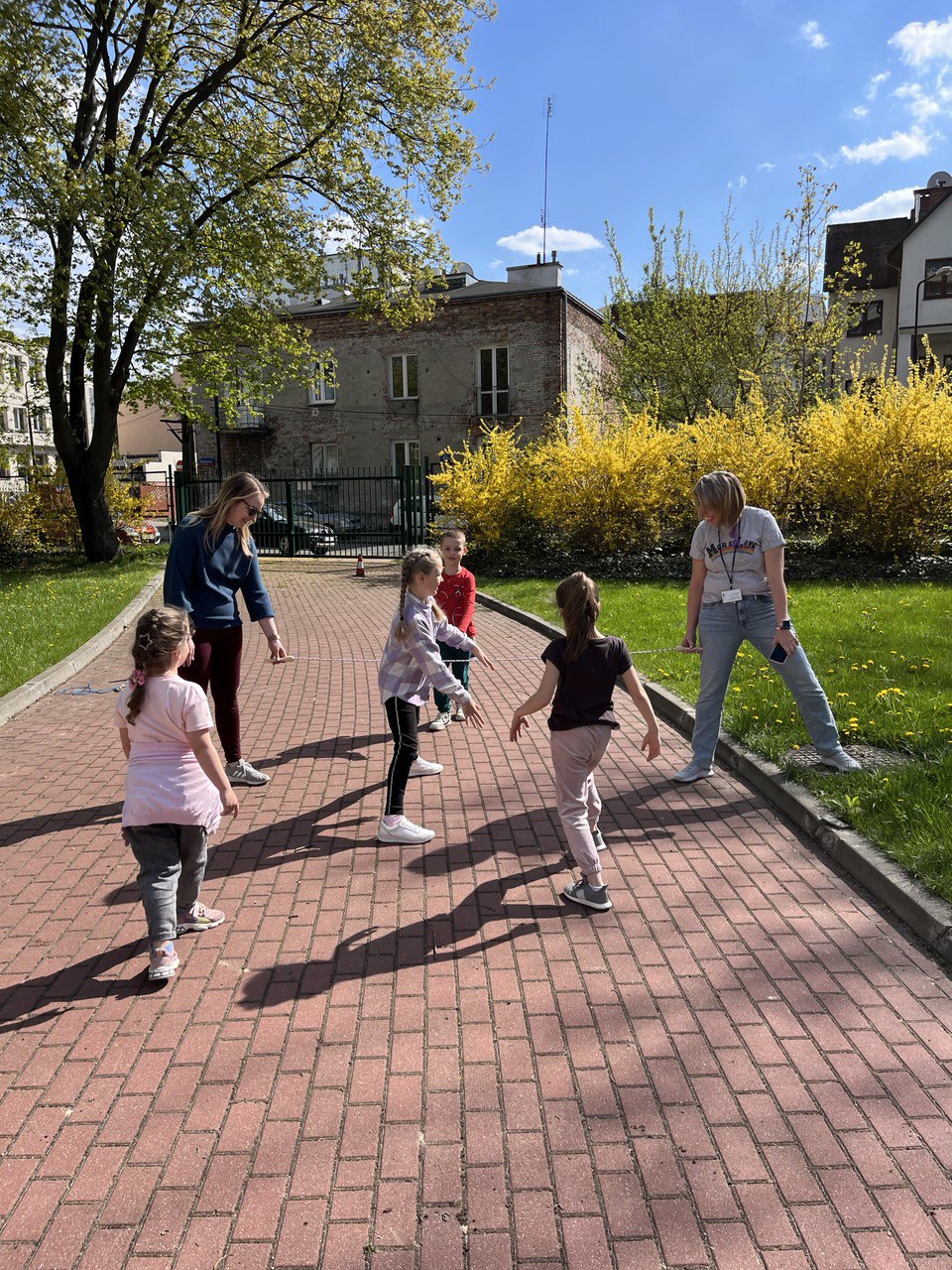
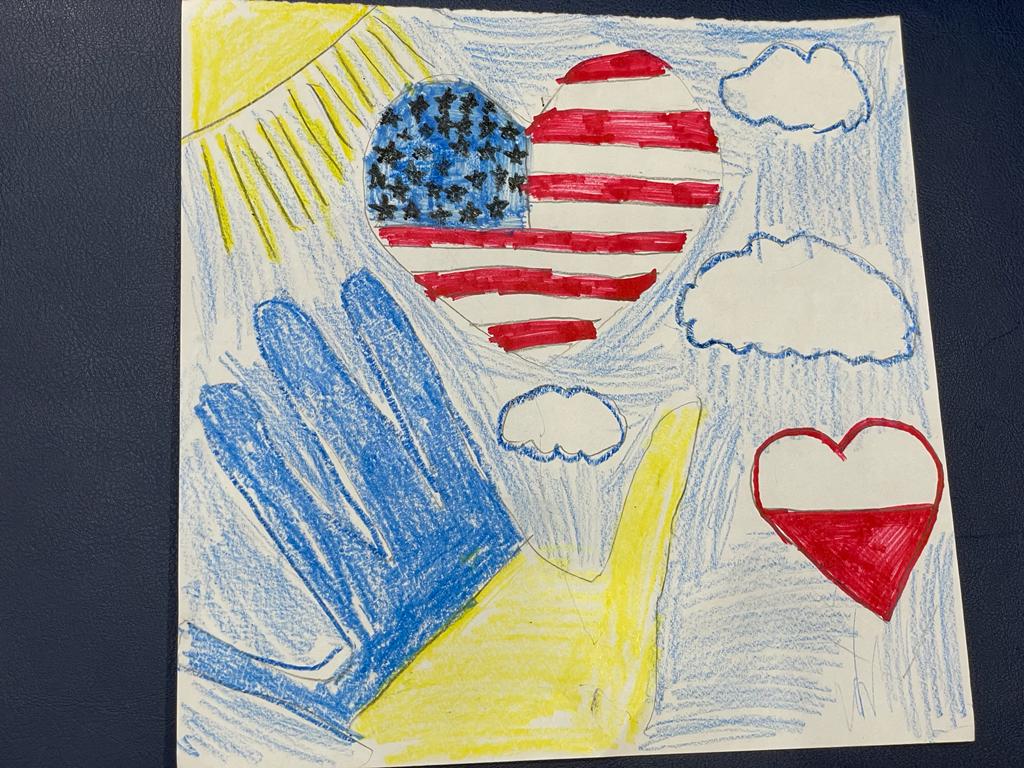
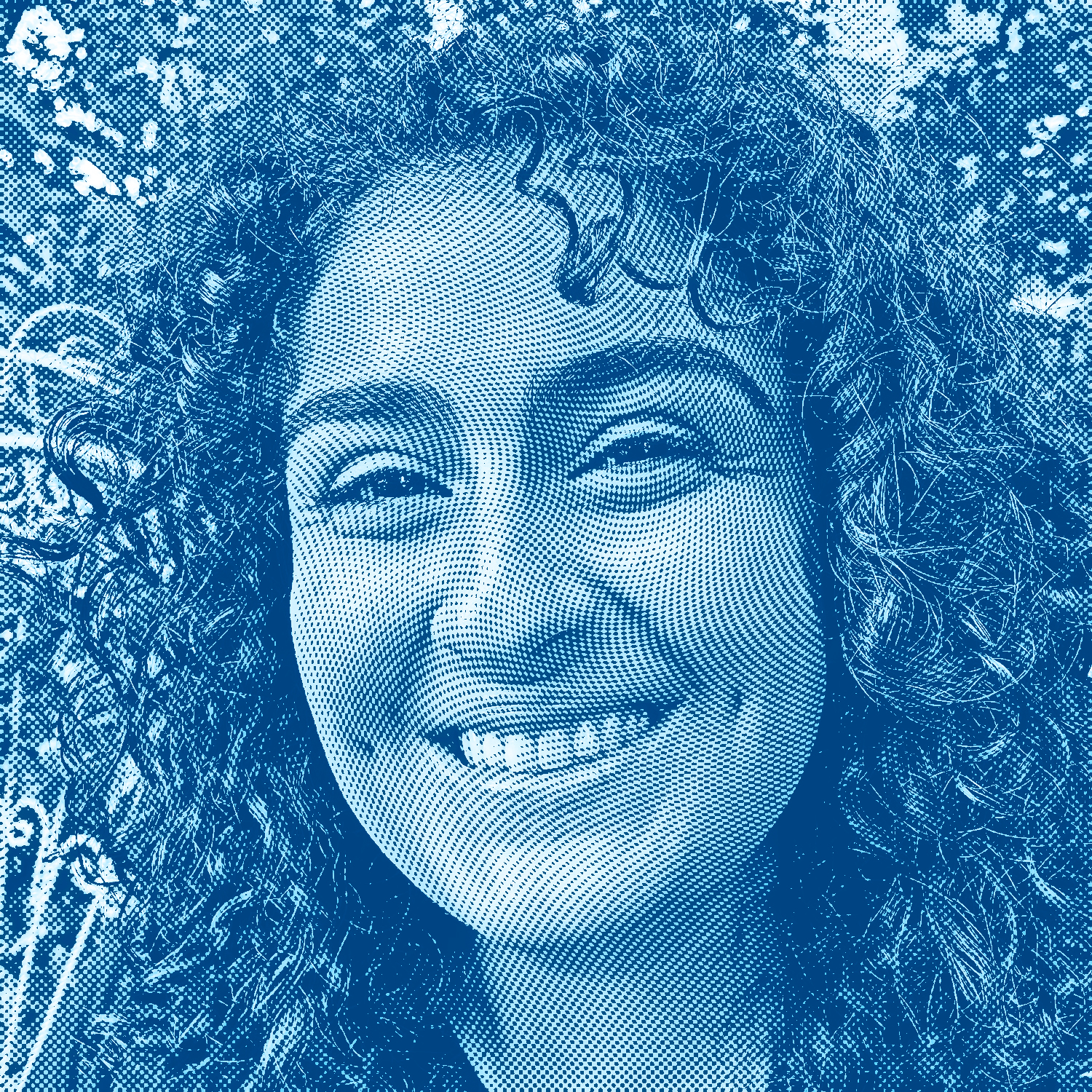
3 Comments
Wonderful article. Thanks for sharing the work of these amazing groups from Nebraska.
One is my daughter in law and this will be shared to several groups in Pensacola, Fl
Thank you, thank you, thank you, Natalia. Your reporting opens a window to understanding the impact of a war half a world away.
Those two women are Nebraska heroes. Thank you!